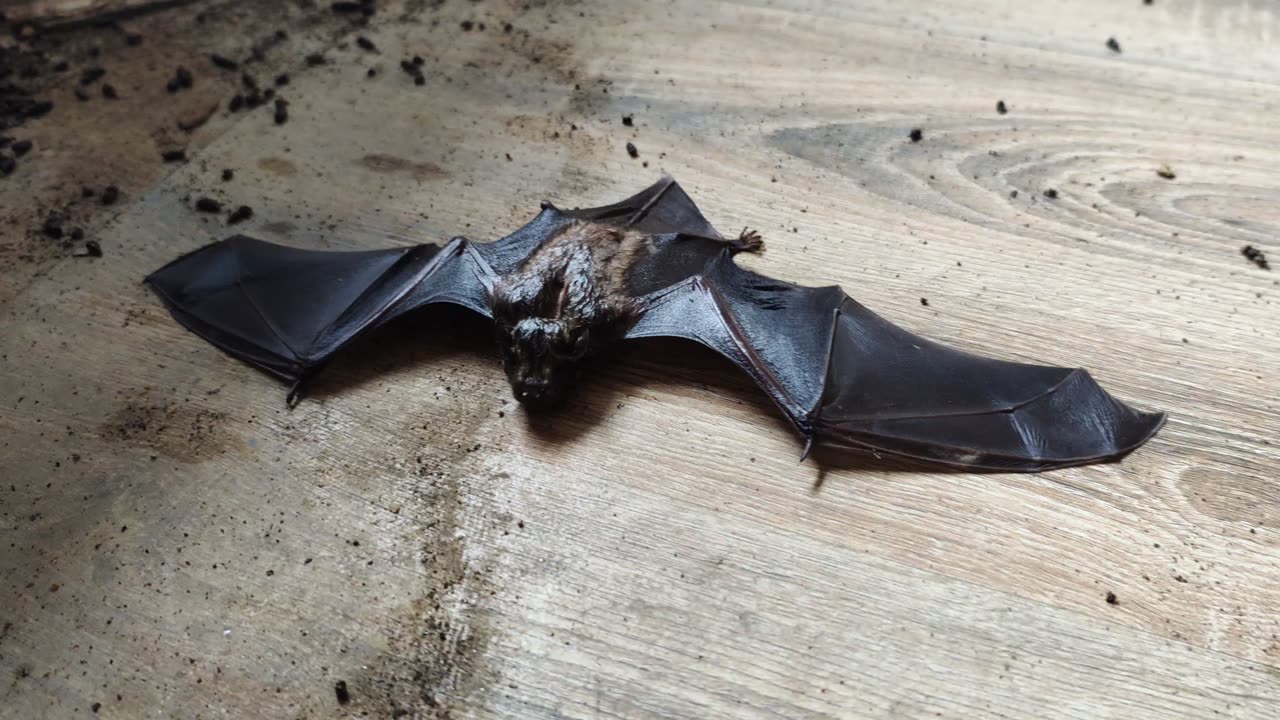Premium Only Content

Bat 🦇 Man
Bats, the intriguing creatures of the night, are a fascinating and diverse group of mammals that have captured the imagination of humans for centuries. With their unique adaptations and behavior, bats play essential roles in various ecosystems and have a profound impact on our world.
One of the most distinguishing features of bats is their ability to fly. With their elongated forelimbs, covered by a thin membrane of skin, bats possess a remarkable power of flight. This adaptation allows them to maneuver with agility and grace through the night sky, exploring vast distances in search of food, shelter, and mates.
Bats exhibit an incredible diversity in size, ranging from the smallest bumblebee bat, weighing only a few grams, to the larger flying foxes with wingspans spanning several feet. This wide range of sizes reflects the myriad of habitats and lifestyles that bats have adapted to across the globe.
While many people associate bats with darkness and fear, it is important to note that the majority of bat species are harmless to humans. In fact, bats are incredibly beneficial to ecosystems and play crucial ecological roles. They are voracious insectivores, consuming vast quantities of insects each night, thereby helping to regulate insect populations and control agricultural pests.
Some bats have also developed unique feeding strategies, such as nectar-feeding or fruit-eating. These specialized diets make bats essential pollinators and seed dispersers, contributing significantly to the health and diversity of plant communities. The iconic relationship between bats and flowering plants, such as agave and durian trees, showcases the intricate web of ecological connections they participate in.
Bats possess a remarkable sense of hearing and echolocation, which enables them to navigate and locate prey in the dark. Emitting high-pitched calls, they listen for echoes that bounce back from objects, providing them with a detailed auditory map of their surroundings. This remarkable ability allows bats to navigate through dense forests, find insect-rich feeding grounds, and avoid obstacles with incredible precision.
Despite their ecological importance, bat populations face numerous threats. Habitat loss, disturbance of roosting sites, climate change, and the spread of diseases like White-nose Syndrome pose significant challenges to bat conservation. Understanding and appreciating the crucial roles bats play in ecosystems can help foster conservation efforts and promote coexistence between humans and these incredible creatures.
By shedding light on the fascinating world of bats, we aim to dispel myths and misconceptions, encouraging a greater understanding and appreciation for these extraordinary animals. Join us on this captivating journey as we uncover the secrets of their biology, behavior, and ecological significance, and discover the wonders of the world of bats.
Subscribe to our channel to embark on more wildlife adventures, where we will continue to unravel the mysteries and showcase the beauty of our planet's diverse animal kingdom. Hit the like button and share this video with fellow nature enthusiasts to spread the fascination for the incredible world of bats!
-
 22:41
22:41
Stephen Gardner
5 hours ago🔥I Can't BELIEVE What JUST HAPPENED to Trump!
33.5K70 -
 2:37:35
2:37:35
TimcastIRL
5 hours agoJFK FILES RELEASED, Shocking Documents Released By Trump DROPPED w/Amber Duke | Timcast IRL
195K146 -
 DVR
DVR
SpartakusLIVE
9 hours agoReturn to VERDANSK w/ StoneMountain64, IcemanIsaac, and Huskerrs
60.5K3 -
 LIVE
LIVE
Hevel Gaming
4 hours ago $1.77 earnedHevel Tries To Conquer Rumble
496 watching -
 51:13
51:13
Man in America
8 hours ago🚨 Big Short 2.0: The SECRET $3.8T Debt Bomb That Could WIPE OUT Pensions & US Economy
44.2K6 -
 14:13:00
14:13:00
MDGgamin
14 hours ago🔴LIVE - JFK Files TODAY!! 2nd Shooter ? - TARKOV & WoW - #RumbleTakeover
29.8K2 -
 4:31:16
4:31:16
Geeks + Gamers
7 hours agoTuesday Night's Main Event
36.6K4 -
 3:35:51
3:35:51
STARM1X16
4 hours agoTuesday Night Fortnite
31.9K1 -
 4:21:30
4:21:30
Reolock
6 hours agoWoW Classic Hardcore (LVL 60) | MC Trash Farm | BWL Prep
26.1K -
 3:10:26
3:10:26
MoFio23!
5 hours agoPerfect Dark (N64) with The Fellas: LIVE - Episode #1
21.5K4